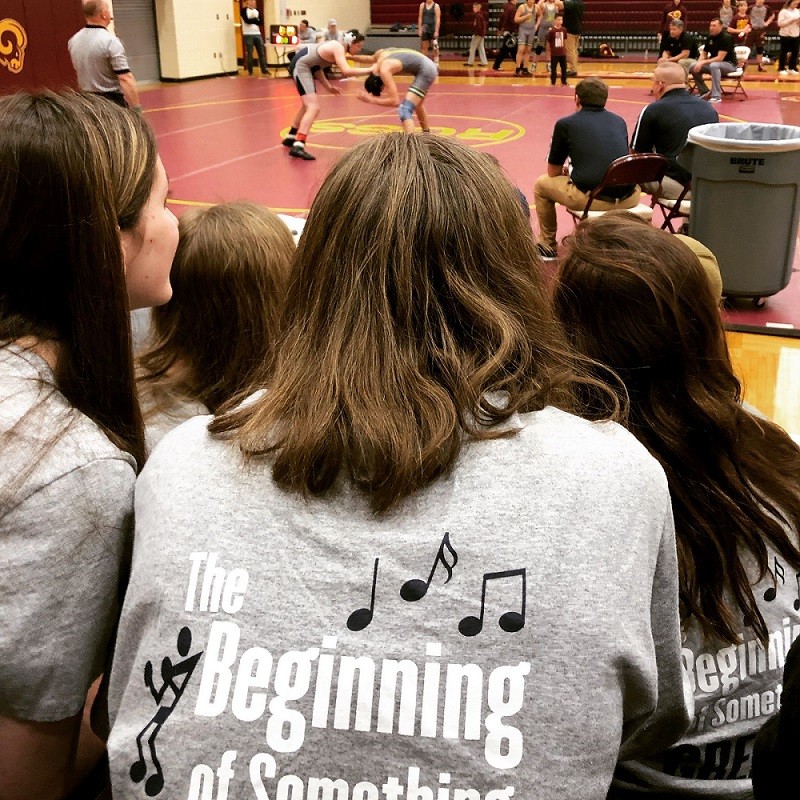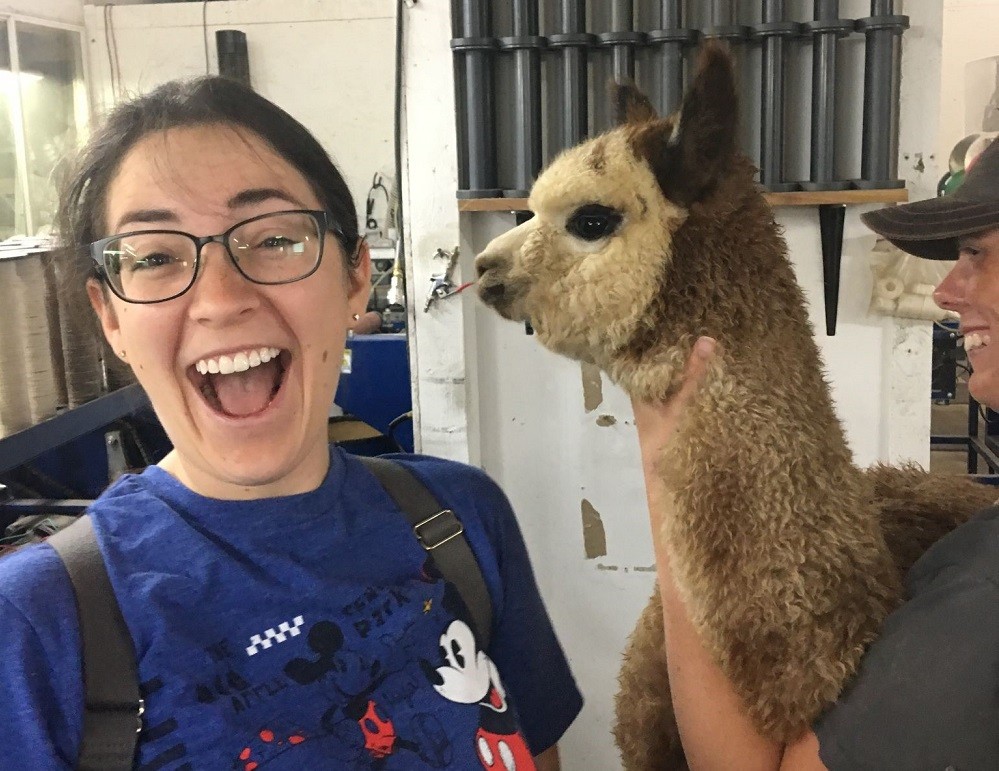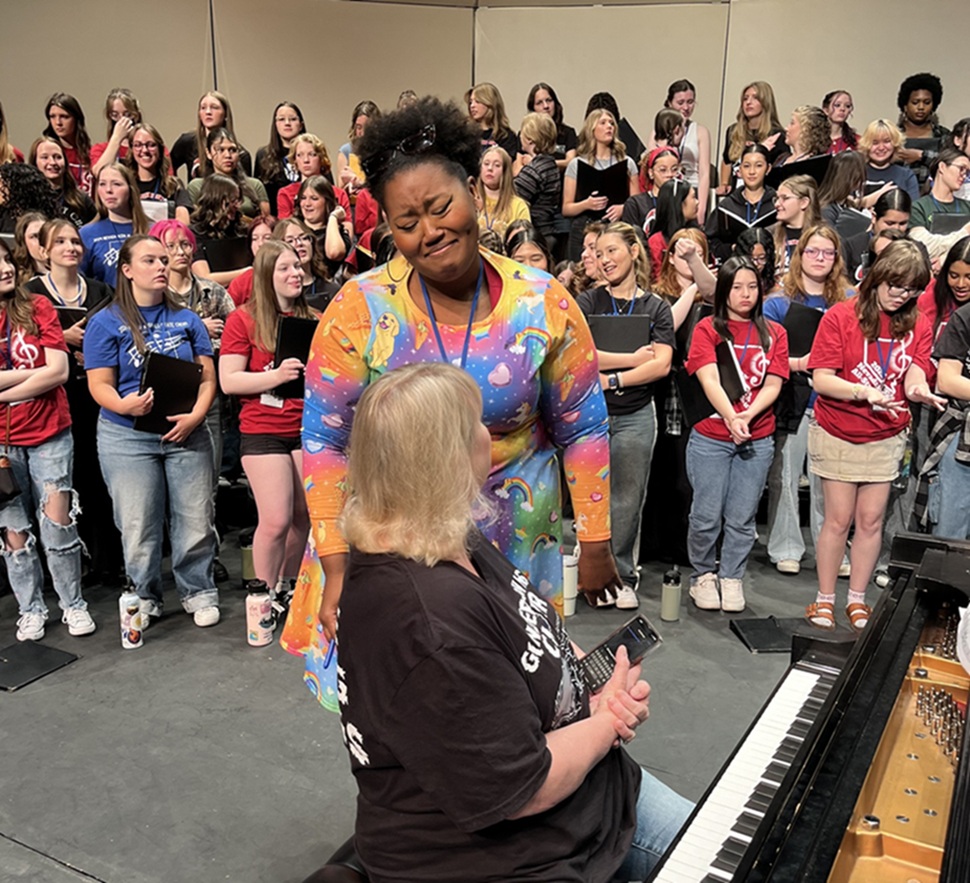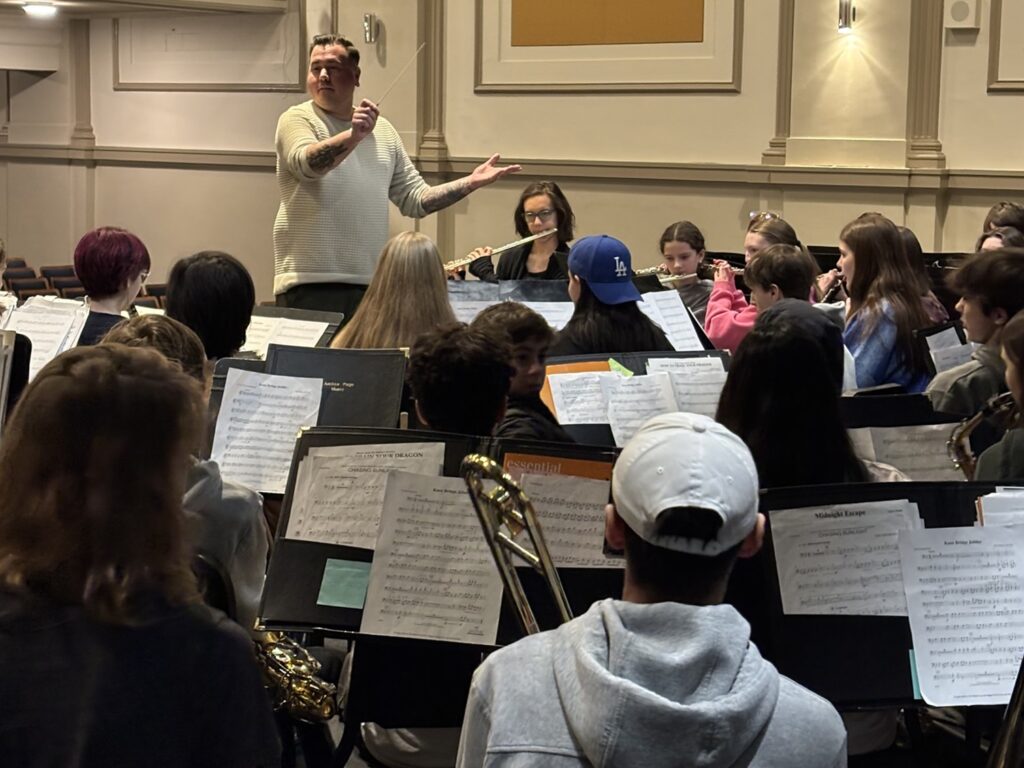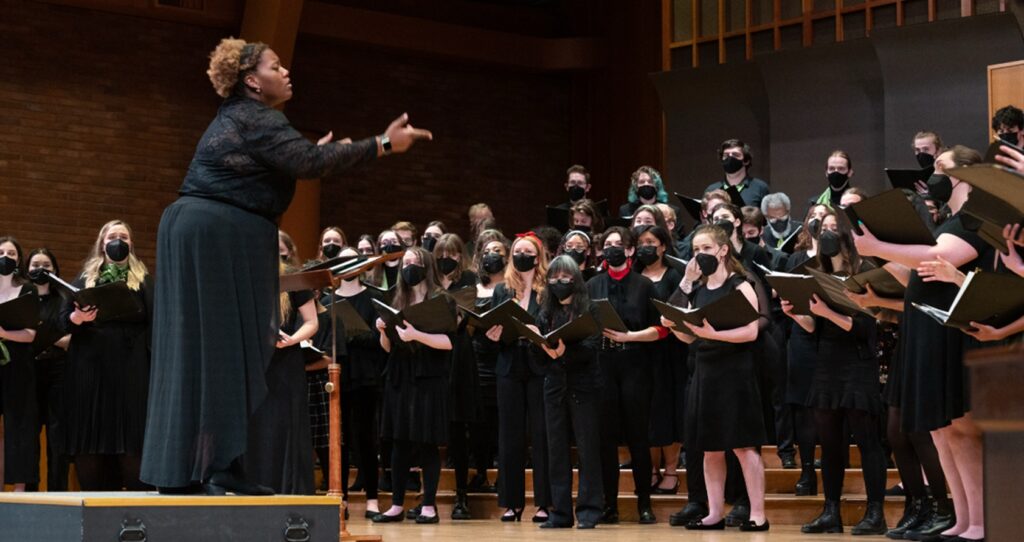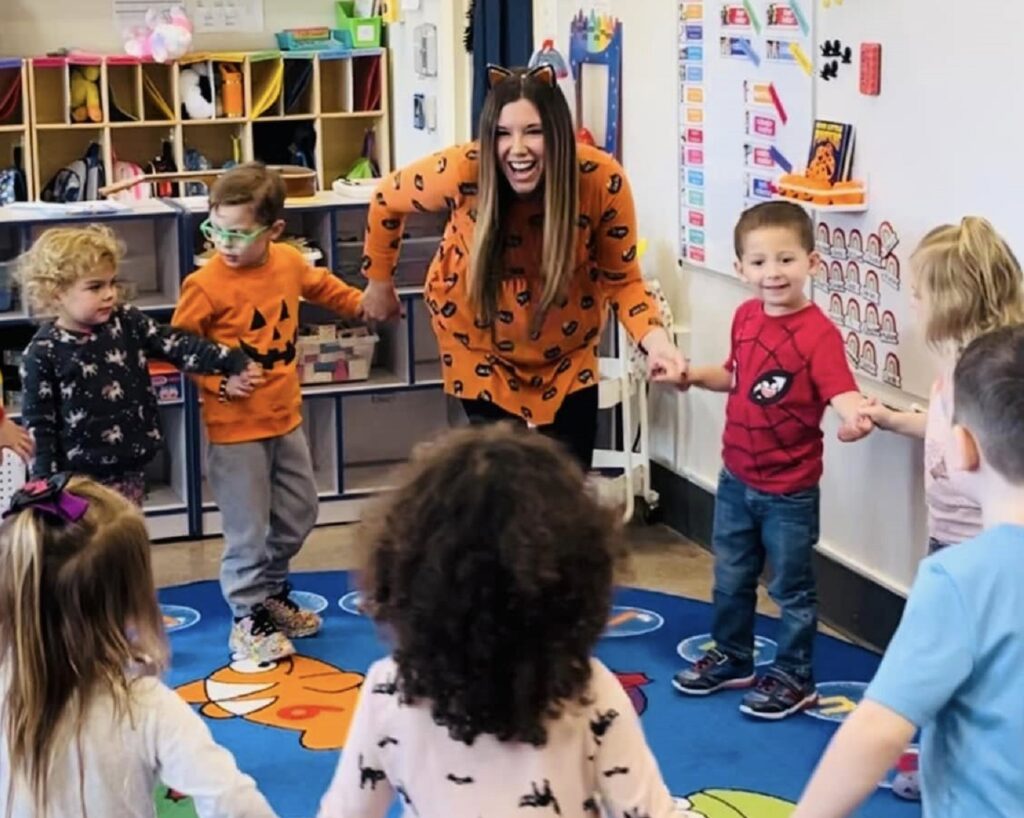Tagged Under:
Case Study: Rural Realities
Teaching in a rural setting has its own set of challenges. Follow these tips from a 2021 Yamaha “40 Under 40” educator to succeed!
Music educators in rural settings face a unique set of challenges.
Depending on the community, these can range from lack of funds and support for the program, limited performance opportunities and limited exposure to quality venues. However, with the right mindset and strategies, the rewards of teaching in a rural school can be immeasurable.
Relationships
I am a product of LaRue County Schools, a small rural program in Kentucky, and I am in my 10th year of teaching at Edgewood City Schools, a very rural system in Ohio, so I have insight into rural education as a student and a teacher. I have found that building a successful program begins and ends with relationship-building. Rural communities tend to be very proud of their heritage. Many families are multigenerational and have been connected to the same land for generations. It is important for educators to quickly learn what is important to the community and align programs with those community values.
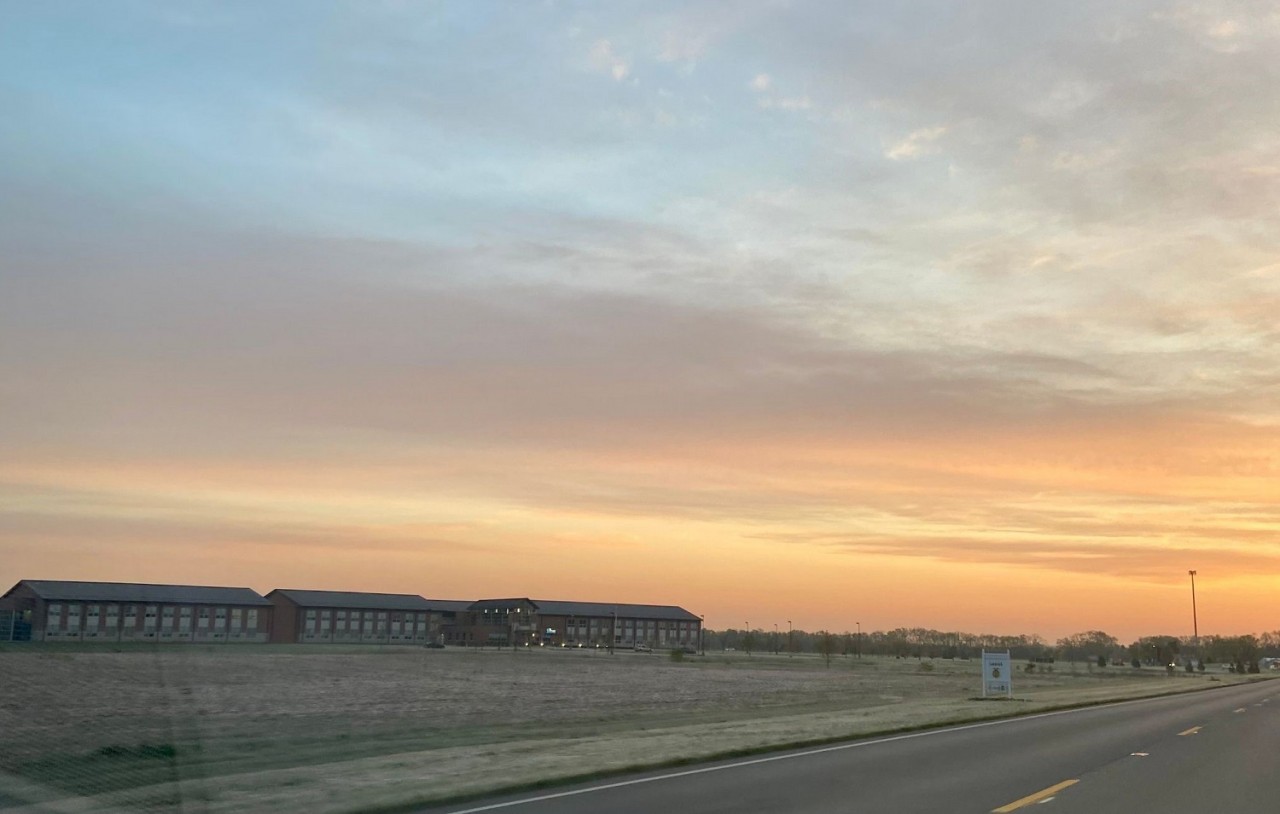 Populations in rural communities tend to be stable. Many of your colleagues and your students have years of community and institutional knowledge. Many students have had the same educator group since kindergarten. They will be curious about you, and the more comfortable you are answering their questions, the more successful you will be. I start every year at Edgewood Middle School with a pre-test about ME!
Populations in rural communities tend to be stable. Many of your colleagues and your students have years of community and institutional knowledge. Many students have had the same educator group since kindergarten. They will be curious about you, and the more comfortable you are answering their questions, the more successful you will be. I start every year at Edgewood Middle School with a pre-test about ME!
I want my students to know me and understand my background for two reasons. First, I want them to know that even though I am not from the same area, our backgrounds are similar. I can usually find something — even if it’s small — to be able to relate to each student in the room. It could be pictures of ATV riding or my cats.
Second, I like to show my students some of my experiences with music. Instead of talking about it, I show them. I break out pictures from my choir trips when I was in high school and college, some of which were international performances. I play clips from my senior recital, my community theater roles and show performances of past choirs. With this simple first-day activity, I build trust with my students and prove that I know what I’m doing without actually telling them that I know what I’m doing.
Relating to the interests of your students is critical. Again, this doesn’t have to be big and flashy. Get to know your audience. Talk to your students about their interests outside of music.
For example, 4H is very popular in my area. In the spring, I talk with my students about how they’re getting their baby animals ready for the fair. The Butler County Fair is the Super Bowl™ of summer here. My students work incredibly hard raising and preparing their animals. While I’ve never shown livestock, my students light up talking about their pigs, calves and goats, and I enjoy learning about them.
Going and cheering on my students at a show takes one afternoon of my summer, but it makes a lifetime of memories for them and deepens the connection I have with their parents. Putting your words into action impresses your students and their parents.
Getting to know your audience also helps in tailoring your teaching techniques. I once had a young man in my class who had little interest in general music, and he just didn’t see where it had real-life implications. I knew he was an avid duck hunter, so I related the concepts of rhythm, pitch matching and timbre by comparing them to the different calls used in duck hunting.
Resources
Except for a lucky few, most music educators are constantly seeking resources. This issue can be especially acute in rural schools where tax bases tend to be lower, so fee-based programs must be used very selectively.
However, there are ways to overcome a lack of resources. For example, most rural students do not have ready access to attend an opera, musical or symphony orchestra. However, students can be introduced to many quality performances online. Excellent virtual learning opportunities have proliferated since the start of the pandemic.
Educators can also seek out grant opportunities for everything from Orff instruments to classroom equipment to guest performers. Creativity is essential. It is also helpful to collaborate with the other fine arts teachers in your school and to coordinate your programs as much as possible. If there are other music educators in your district, seek their guidance.
Facebook groups of like-minded professionals can be a great way to share ideas and learn about new opportunities, but like all social media, beware of the inherent drama of some groups.
Another invaluable resource is your parent booster group. Our boosters have provided everything from financial support to advocacy with decision-makers. Also, some of your students’ parents may work at organizations that offer assistance to educational programs.
Recognition
Finding opportunities for students to achieve recognition and validation is imperative and pays endless benefits. Most rural schools have at least one sport — be it wrestling, basketball or football — that is a source of pride for students and the community. Kids want to be a part of these winning teams. Crafted properly, your music program can have the same appeal and winning reputation.
How? Set clear expectations on Day One and set them high. Some educators argue that trophies aren’t important and that they have students enter competitions just for the personal satisfaction of doing a good job. That may work in some locales, but I firmly believe that opportunities for formal recognition — and the hardware that comes with it — is important and motivating to the majority of rural students. It also builds school pride, brings honor to the school system and strengthens buy-in from parents and administrators.
Always search for venues and participation opportunities for your programs. My 8th graders have performed at Kings Island amusement park for critique and ratings from professionals. Our recently developed Overtures Show Choir competed at multiple venues prior to the pandemic. In the past year, we have used virtual competitions and critiques to measure our progress.
If traveling is simply not an option, look to professionals you admire. Set up Zoom meetings or send videos of performances to friends and colleagues in the music field. Former teachers are a great source for authentic feedback for your students. While this may not produce trophies, it gives the students pride in what they are accomplishing in your class.
In addition to competitive recognition, it’s essential to be your program’s ambassador to the community. Find out which events are important to the community and have your students participate. Whether it’s having a float in a community parade or performing at a local Christmas festival, any event that brings your students in contact with the community is important.
Becoming your program’s primary marketer is another vital role for the rural educator. It’s simply a fact that most parents, co mmunity members and sometimes school board members have no idea what you teach or what students gain from your program. Make sure that your program aligns with other subjects taught and tested at your school. Collaborate with teachers in those subjects and make sure they understand the degree of support and reinforcement your class provides.
Any time your program or any of your students achieve recognition, use whatever means available to promote those accomplishments. Different schools have different methods, but you should notify your administrators and your district public relations executive. Use social media, parent newsletters or any other media available to spread the news. I vividly remember my grandmother’s refrigerator covered in newspaper clippings of her grandchildren’s accomplishments. These are little things, but they build those invaluable relationships when you need booster support or funding.
Recruitment
Whether starting a new program or building on an existing one, recruitment is critical. Your existing kids are your best resource for recruiting their fellow students. Success breeds success. As your students receive recognition and pride in the program grows, others want to become a part of the fun.
In rural schools, several of your most talented prospects are likely athletes. It’s important to develop cooperative relationships with athletic coaches to ensure that practice schedules and competitions can be coordinated. Mutual support can be achieved. Before COVID, our entire show choir turned out to support the wrestlers in our groups at a major match. Coaches appreciate singers who know how to project, cheering on their athletes.
In addition to building student outreach, I worked with my counterparts at Edgewood High School — Libby Wolf and Nick Fields — to create recruiting videos and posters on social media to reach prospective students. After watching some YouTube tutorials, we were off and running making our own videos. It cost us nothing but a little time, and we ended up with high-quality recruitment media that brought pride to our returning members and intrigue to those who were new.
Relax
My last tip is to simply relax. Kids are kids, regardless of their background. Hopefully, you became a music teacher because you love music and want to share that love with students. At the end of the day, that must be your primary focus and goal. Do not be afraid to show your students that you love music. Have fun with it and with them. It doesn’t matter where your students come from, the more genuine you are, the more buy-in you will get.
Rewards
As music educators, we have the ability to make a connection with our students that few teachers can enjoy. We tend to have students in our program for several consecutive years and really get to know them. In rural communities, you can make connections throughout families, and often teach siblings and cousins of your original students. These families become your best cheering section and your own extended family. I will be forever indebted to the band dad who helps with our plumbing issues and the former choir family, whose kids have all graduated, that offers to babysit my 3-month-old when I have a weekend rehearsal.
It’s incredibly rewarding to see my students grow up, seek further education, join the local workforce and begin families of their own. But perhaps my highest honor was when a student’s family asked if they could name and register their newborn alpaca as ANF’s Carmen Fields. It just doesn’t get better than that!
Embrace your rural realities — the opportunities and rewards are limitless.










